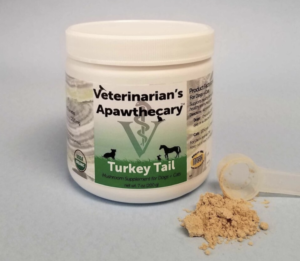Holistic Support For Feline Herpes Virus 1

Image credit: Unsplash
One of the most common viruses that cause upper respiratory illness in cats is feline herpes virus 1, or FVH-1. Having had a kitty with this virus I know first hand how miserable the symptoms can be for your cat.
The feline herpes virus 1 is most commonly found in cats who are in shelters, rescues, or multi-cat households and catteries. Furthermore, when cats are shedding the virus it spreads easily through saliva, sneezing, or eye fluids making it highly contagious.
Symptoms of feline herpes virus 1
Common symptoms for FHV-1 can include:
- Sneezing
- Both decreased and excessive tears
- Conjunctivitis
- Corneal ulcers
- Coughing
- Nasal mucous
- Ulcers in the mouth, on the face or nose
- Fever
- Lethargy
- Loss of appetite
- Depression
Treatment for feline herpes virus 1
Treating cats with FHV-1 is most commonly done with supportive care. Dr. Karen Becker, DVM, recommends using “homeopathic nosodes, immune-boosting medicinal mushrooms and herbs, including olive leaf, Cat’s Claw, Pau D’arco and turmeric, as well as lysine to treat upper respiratory diseases in cats and shorten the duration of these infections.”
My favorite go to homeopathic remedy to address respiratory symptoms associated with this virus is Natrum Mur 30C. Surprisingly, according to a veterinary homeopathy guide I use Nat Mur 30C is often even more effective than the amino acid l-lysine.

How to support the immune system in cats with FHV-1
A strong immune system is the best defense against FHV-1, and fortunately there are easy ways to provide such support. The first way is to feed a species appropriate diet. Because cats are carnivores, they need a wet, animal protein based diet, and this can include fresh, raw, freeze-dried or canned foods. Avoid feeding kibble because the high amount of plant-based ingredients are broken down as sugar in the digestion process. As a result, over time this creates an inflammatory response in the body.
The second way to build a strong immune system is to use supplements that are high in antioxidants. My favorites are medicinal mushrooms; these come in both powder form and herbal tinctures. The antioxidants in medicinal mushrooms work to neutralize free radicals that the body produces during an immune response to some kind of environmental stressor. Left unchecked, free radicals can cause oxidative stress resulting in damage to cells, organs and body systems.
Minimize stress, both physical and emotional
Another way to keep your cat’s immune system strong is being smart when it comes to vaccines. Dr. Becker also shares some wisdom in this regard:
If she received a full set of kitten shots in her first year of life and she lives indoors, she probably has no need to be re-vaccinated as an adult. Ask your holistic vet to run titers to determine which of the core feline diseases, if any, your cat isn’t already immune to. Being a vaccine minimalist will help your kitty’s all-important immune system remain balanced and functional for a lifetime.
Finally, keeping stress levels to a minimum helps tremendously if your cat has the feline herpes virus. Providing an outlet for stress with daily play sessions, playing calm or soothing music, providing access to fresh air or supervised outdoor time, and minimizing disruption in your cat’s normal routine can keep the stress levels low. High stress situations can trigger flare ups of the virus.
Hindsight provides insight
In Snowbear’s case we are not sure how he acquired the feline herpes virus because he was completely healthy for many years before showing symptoms. Back in the day before I was educated about over-vaccination, he used to receive annual vaccines. (I shudder to think about that now.). Suddenly one day he developed a corneal ulcer which led to cherry eye. After that incidence his symptoms included sneezing, coughing and watery eyes. Looking back now I can honestly say he was over-vaccinated for many years. Thank goodness now I know better!
Ultimately, prevention is the better alternative to having to treat disease. However, if your cat has been diagnosed with or exhibits many of the symptoms of feline herpes virus 1, using the recommendations provided can keep your cat’s immune system strong as well as help her recover faster from flare ups.
To learn more about feline herpes virus 1 check out Dr. Karen Becker’s article here.
Other resource:
Fast Forward To The Cure by Lorelei Whitney, M.H. ,C. HOM, D.I.Hom

